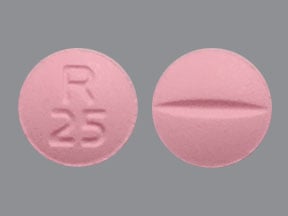
Metoprolol Tartrate Coupons & Savings Card – Discount Prices from $6.42
Generic for: Lopressor
My prescription
Edit
25MG, Metoprolol Tartrate (60 Tablets)
Select pharmacy

CVS
$19.14
COUPON PRICE
Walmart
$6.42
COUPON PRICE
Albertsons
$8.14
COUPON PRICE
Walgreens
$10.03
COUPON PRICEMetoprolol Tartrate savings card
Show this card to your pharmacist
Walmart
$6.42
BIN
ID
PCN
GRP
019876
LH0506E8FB
CHIPPO
LHX
Powered by
More prescriptions for hypertension
More prescriptions for hypertension
Price history for Lopressor (brand) & Metoprolol Tartrate (generic)
60 Tablets, 25MG
Average retail price for Lopressor
Average retail price for Metoprolol Tartrate
Average SaveHealth price for Metoprolol Tartrate
Our price history data is based on aggregated prescription data collected from participating pharmacies in America. Our prescription data updates daily to reflect the latest price changes. If you notice a missing data point, it means there wasn't sufficient data available to generate a monetary value for that date.
We analyzed Metoprolol Tartrate prices for (25MG, 60 Tablets) over the last 12 months. The average retail price was $47.51, while the average price using the SaveHealth discount card was $12.02. That's a savings of approximately 74.70% when using our Metoprolol Tartrate coupon.
Compared to the generic version, Lopressor had an average price of $426.56 over the same time period. With the SaveHealth savings card, Metoprolol Tartrate is 97.18% cheaper on average than Lopressor.
*Retail prices are based on pharmacy claims data, and may not be accurate when we don't have enough claims.
Metoprolol Tartrate dosage forms
Dosage Quantity Price from Per unit 25MG 60 Tablets $6.42 $0.11 25MG 30 Tablets $1.01 $0.03 25MG 90 Tablets $12.12 $0.14 25MG 180 Tablets $18.19 $0.10 25MG 270 Tablets $19.79 $0.07 37.5MG 30 Tablets $11.38 $0.38 37.5MG 60 Tablets $13.76 $0.23 37.5MG 90 Tablets $21.95 $0.24 37.5MG 120 Tablets $24.27 $0.20 37.5MG 180 Tablets $28.91 $0.16
| Dosage | Quantity | Price from | Per unit |
|---|---|---|---|
| 25MG | 60 Tablets | $6.42 | $0.11 |
| 25MG | 30 Tablets | $1.01 | $0.03 |
| 25MG | 90 Tablets | $12.12 | $0.14 |
| 25MG | 180 Tablets | $18.19 | $0.10 |
| 25MG | 270 Tablets | $19.79 | $0.07 |
| 37.5MG | 30 Tablets | $11.38 | $0.38 |
| 37.5MG | 60 Tablets | $13.76 | $0.23 |
| 37.5MG | 90 Tablets | $21.95 | $0.24 |
| 37.5MG | 120 Tablets | $24.27 | $0.20 |
| 37.5MG | 180 Tablets | $28.91 | $0.16 |
| 50MG | 30 Tablets | $3.16 | $0.10 |
| 50MG | 60 Tablets | $3.83 | $0.06 |
| 50MG | 90 Tablets | $10.99 | $0.12 |
| 50MG | 180 Tablets | $18.58 | $0.10 |
| 50MG | 270 Tablets | $20.36 | $0.07 |
| 75MG | 30 Tablets | $7.35 | $0.24 |
| 75MG | 60 Tablets | $12.20 | $0.20 |
| 75MG | 90 Tablets | $23.55 | $0.26 |
| 75MG | 120 Tablets | $28.40 | $0.24 |
| 75MG | 180 Tablets | $39.76 | $0.22 |
| 100MG | 30 Tablets | $9.79 | $0.33 |
| 100MG | 60 Tablets | $10.57 | $0.18 |
| 100MG | 90 Tablets | $17.36 | $0.19 |
| 100MG | 180 Tablets | $19.72 | $0.11 |
| 100MG | 270 Tablets | $22.08 | $0.08 |
